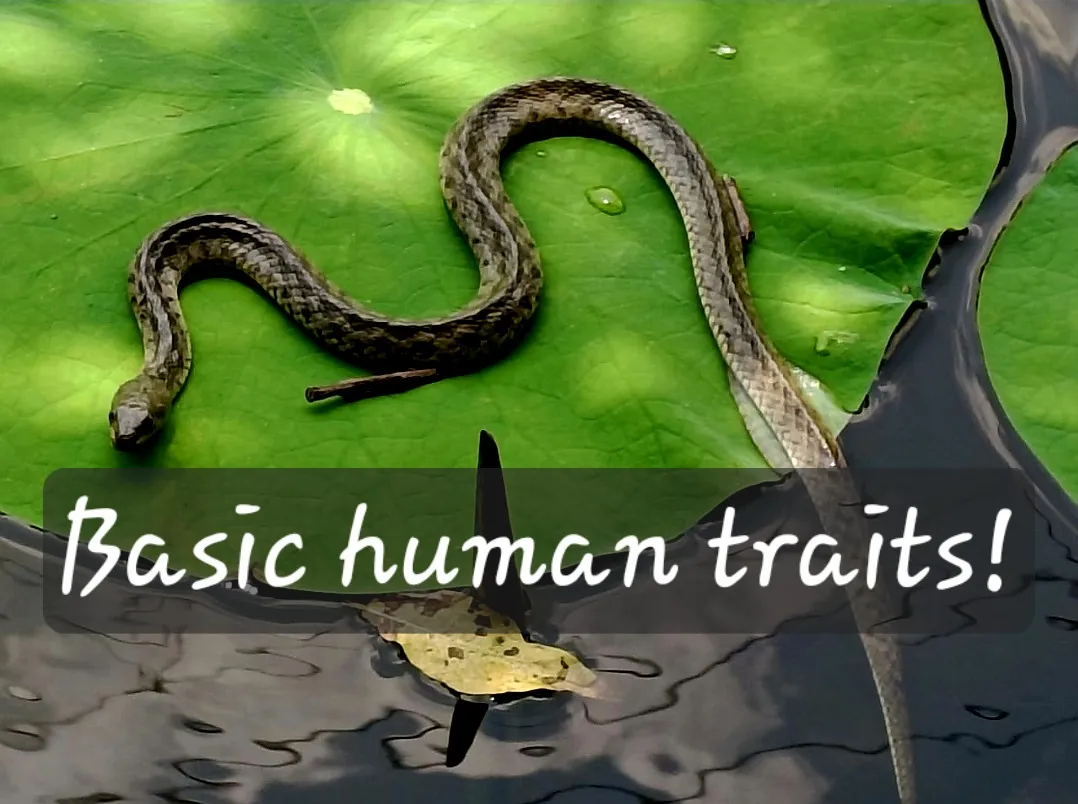The question of whether people are born inherently good or bad is a long-standing debate with no easy answer. People's development into "good" or "bad" is a complex interplay of various factors, including inherent traits, environmental influences, and personal choices. I remember, whenever we create nuissance in the school, our English teacher always comes up with the pet line - "this shows which family you belongs to". Many belive it is the role of the parents and their nurturing style that define the traits of a person. While genetics and early childhood experiences play a role, ongoing interactions with the world, including social, cultural, and personal events, shape a person's morality and behavior.

(own edited image)
While genetics and environment play a role, individuals have agency in shaping their own behavior. Personal choices, moral reasoning, and the willingness to learn from experiences contribute to the development of one's character. The building blocks of a child starts with their parents. Parenting plays a crucial role in shaping a child's development, but societal influences can either reinforce or counteract those positive impacts. While good parenting fosters positive values, social pressures can sometimes lead individuals down a path of negative behaviors. Parents are the primary educators in a child's life, guiding them on right and wrong, and instilling core values like respect and empathy. Good parenting equips children with essential social skills like communication, cooperation, and conflict resolution. However, as the children steps outside they find a different environment. Children spend time outside the home interacting with peers and exposed to various forms of media, which can expose them to negative influences and behaviors that may contradict positive parenting. It is important to understand that parenting and societal influences are not mutually exclusive. Parenting provides the foundation, but societal factors can either strengthen or weaken that foundation. A society that respects and supports parents is more likely to have well-adjusted individuals, while a society that undermines parenting can contribute to negative behaviors and social problems.
The terms "good" and "bad" are subjective and can vary across cultures and individuals. However, generally, "good" behavior is associated with traits like kindness, empathy, and honesty, while "bad" behavior is often linked to traits like aggression, selfishness, and deceit. Many experts believe that humans are born with a natural inclination towards goodness, others argue that we are inherently selfish or even evil. Most experts agree that neither extreme is entirely accurate and that individuals are born with the capacity for both good and bad actions. The development of a person's moral compass is heavily influenced by a combination of, upbringing, environment factor, and personal choices. Humans are social creatures who learn from their environment, and positive reinforcement for prosocial behaviors can encourage them to be kind and helpful. Some theories suggest that society, with its emphasis on rules and consequences, can corrupt individuals who might otherwise be naturally good. Innate desires for survival and self-preservation can lead to behaviors that might be seen as selfish or even harmful to others.
In conclusion, the question of whether people are born good or bad is a complex one. While there is evidence to support both sides of the argument, it is more accurate to say that humans are born with the potential for both, and their development is influenced by a wide range of factors. Parenting styles, family relationships, and early childhood experiences significantly impact the development of social skills, emotional regulation, and moral reasoning. Traumatic events, positive role models, and significant life changes can all shape a person's perspective and moral compass. An individual's own moral framework and belief system play a crucial role in guiding their choices and actions.
In good faith - Peace!!
